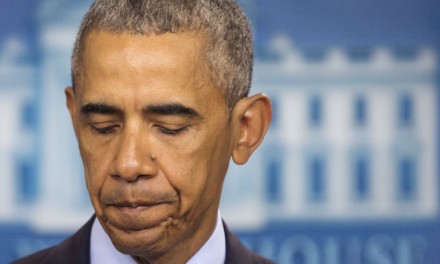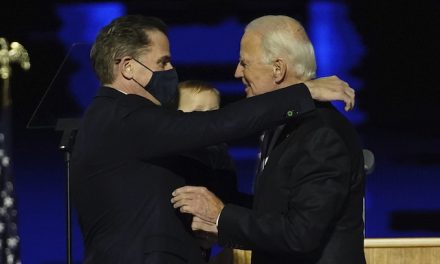Twila Brase, who leads Citizens’ Council for Health Freedom and is a patient’s rights advocate, has also been an advocate for freedom during a year of COVID-19 lockdowns. She is now urging governors to follow Florida’s governor, Ron DeSantis, to tell the federal government it can’t make such demands.
“Governors should ban this everywhere across the states,” Brase tells One News Now, “and it would be good for citizens to encourage them to do so.”
Gov. DeSantis appeared to be the first state governor to respond to the Biden administration and announce Florida would never allow a “vaccine passport” that would regulate travel and movement among citizens.
DeSantis, who is getting national attention for a possible White House run, was praised — sort of — in a Politico op-ed for jumping out in front of the controversy as soon as it started making headlines. In the op-ed, Politico reporter Jack Shafer writes that “liberals might want to pause their reflexive opposition to the governor’s latest move to consider whether his anti-passport stand, fully considered, makes a point worth endorsing.”
In other states, Texas Gov. Greg Abbott has denounced the idea, too, and Nebraska Gov. Pete Ricketts has said his state would not participate in the “terrible idea” of such a restrictive program.
“Any sort of vaccine passport would violate our freedom of movement and (would) certainly violate our privacy with regards to our own health, (as there) could be a HIPAA violation.” Gov. Ricketts told the “Washington Watch with Tony Perkins” program.
Responding to the push, the Tennessee Senate passed a bill banning the practice in a 27-3 vote. A similar bill is moving through the state House, too, and Tennessee’s governor, Bill Lee, has said he supports the legislation.
According to an NPR story written to reassure the public, the “passport” idea is really more like a credential that can “demonstrate a person’s health status” using a smartphone app or a QR code.
A spokeswoman for the airline industry told NPR it is simply “digitizing a little piece of paper that has your vaccine information on it.”
The same NPR story quoted Dr. Zeke Emanuel, a bioethicist and past member of President Biden’s COVID-19 advisory board. He said asking for proof of a vaccinnation can help states ease lockdown restrictions.
“It’s really not a passport to necessarily cross borders. It’s a certification,” he said. “It’s providing information about what your status is in some area.”
Last week, White House press secretary Jen Psaki told reporters “the government is not now, nor will we be, supporting a system that requires Americans to carry a credential.”
Psaki went on to insist there will be no database of those who have – or have not – gotten a vaccine, and there will also be no federal mandate requiring one, she said.
In the Politico op-ed, Schafer point out that the White House is denying any involvement but, in reality, the Federal Health IT Coordinating Council met in March to discuss a “unified policy” for just such a passport requirement.
Farther down in the NPR story, it states that such passports will “almost certainly” be used for international travel but the story goes on to predict their usage at “sporting events, movie theaters, music venues, workplaces, and for domestic travel.”
—-
Copyright American Family News. Reprinted with permission.



















The fact is that the public is being prevented from engaging in normal life even if we prove we have been vaccinated.
We are not allowed to step foot in schools, businesses & health care facilities without wearing 1 or more masks & having to maintain distance causing lines & backup.
Maybe BLM / antifa will burn down places that are offending our human rights.
So I take it that HIPAA has been repealed?
Might well have been..
“Dr. Zeke Emanuel, a bioethicist and past member of President Biden’s COVID-19 advisory board. He said asking for proof of a vaccination can help states ease lockdown restrictions”. Dr. Emanuel is a “bioethicist” alright. According to Emmanuel, senior citizens have little worth in society and Emanuel is nothing but a “woke” communist. So much for being a “bioethicist”!!!!
MT Governor Greg Gianforte issued an executive order on Ap 13 forbidding vaccine passports.
I’ve heard several other states also have… LETS SEE MORE do the same.
If the vaccine is so wonderful and effective then it won’t matter to those who have received it that others have not. The effectiveness of the vaccine will protect them. If it isn’t as good as has been touted then what is the point of getting it?
It is experimental, it is not FDA approved, and all liability for adverse effects has been lifted from the manufacturers. If, knowing that, someone still wants to get it…go for it. However, since it is IMPOSSIBLE to have informed consent for this vaccine there should be no ramifications for those who don’t wish to receive it. That applies domestically and internationally.
This is just another way to cause division in our country. In addition, some of us don’t carry a smart phone (I don’t even personally have a cell phone) and have no intention of getting one. That puts these people at a disadvantage also. It isn’t about COVID or vaccines it is about controlling and tracking people.
The American people need to start boycotting and suing companies, governors and anyone else who demands to know if you’ve gotten the vaccine. From what I’ve heard, governors are PERSONALLY liable if they try to force anyone to get an experimental vaccine.
Great post prairieliving. You NAILED it.
Over on one of my gaming related sites, someone, talking about this year’s Gencon was saying “IF and when gaming in person gets back to being allowed, i and many others i know will REFUSE to game in person with someone who’s not been vaccinated, EVEN IF WE ARE”.
IMO if folks are THAT SCARED of getting covid, that they refuse to do stuff with the ‘unvaccinated’, WHAT WAS THE POINT IN THEM Getting the vaccine in the first place?!
Enough is enough is enough. This is now way too much.
No covid passports. Not now. Not ever. American freedom MUST prevail.